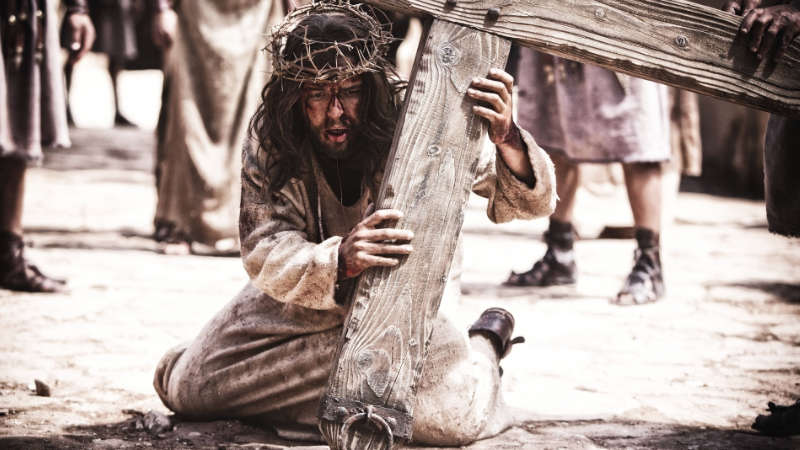Reflections
What Will Abiding in Christ Secure?

Noah was not so safe in his ark; Lot was not so safe in Zoar; the man-slayer was not so safe in the city of refuge—as the true believer is in Christ.
What will abiding in Christ secure?
Noah was not so safe in his ark; Lot was not so safe in Zoar; the man-slayer was not so safe in the city of refuge—as the true believer is in Christ.
Abiding in Christ, to him there is no condemnation; every sin is pardoned; the whole, the perfect, the glorious righteousness of Christ is his! All the glorious perfections of His nature are thrown around the man who abides in Him. He is . . .
safe from Satan, who cannot destroy him;
safe from sin, which shall not have dominion over him;
safe from men, for no weapon formed against him shall prosper; and
safe from death, for Jesus has said, “He who keeps My sayings shall never taste of death.” In Christ! his person is secure.
Abiding in Christ—all things work together for his good. Happy believer, no one shall ever pluck you out of your Redeemer’s hands, or sever you from your Savior’s love! Abiding in Christ will not only secure our safety—but our happiness! Happy, thrice happy is the man who is in Christ.
He is not only pardoned—but justified;
not only justified—but accepted and pleasant in the sight of God;
not only accepted—but adopted, and is God’s beloved child;
not only a beloved child—but an heir of God, and a joint heir with Christ!
Is it not enough to make a man happy, to know that God . . .
has blotted out all his sins;
has given him a glorious, eternal inheritance;
and never looks upon him, but as in Christ, nor treats him otherwise than as a beloved child?
Reflections
For Those Who Bear Heavy Burdens
One of the primary characteristics of David’s life was that he had a heart for God (Acts 13:22).
For Those Who Bear Heavy Burdens
One of the primary characteristics of David’s life was that he had a heart for God (Acts 13:22). However, if you did not know anything about his life other than the years he spent running away from King Saul and the threat of death, you would be tempted to wonder what God was doing.
In 1 Samuel 16, the Lord instructs the prophet Samuel to anoint David king of Israel, but nothing significant happened in this direction for a long time. Imagine being called into the office of the CEO of your company and being told that you had just received a very important promotion.
In your mind, it is time to clean out the desk in the cubicle you have been working in for the past three years and get ready for a move to an upstairs office with windows and a pastoral view of woodlands. But nothing happens.
You pray, and God confirms that He has a plan for your life and especially for your circumstances.
David may have had times of disillusionment, but we never read of him wanting to do anything other than to achieve the goal that God had set for him. If that meant waiting, then he was ready to wait indefinitely.
His relationship with the Lord was tightly woven with threads of faith, hope, love, and surrender. You will never reach your full potential as long as you look at your circumstances and say, “God, I can’t,” or “God, I won’t.” The truth is: brokenness is a pathway to blessing.
But it also is the way God uncovers our true potential. Rarely does He use people until He has broken them. This process can be very painful, but one of the best ways to advance through it is to surrender your problems and fears to the Lord. Be willing to obey Him, and be willing to wait or move forward at His command.
Clinging to disappointments and feelings of anger and frustration only prolong the journey. These also have the potential to tempt us to doubt God’s goodness and plan.
Resist feelings of self-pity, especially when the enemy whispers, “This is the end,” “You will never get out from under this burden,” or “You are alone, and there is no one to help you.”
Friends and family members can be great encouragers, but they also can be tempted to offer discouragement instead of faithful support. Remember what Job’s wife suggested when he faced severe temptation? She told him, “Do you still hold fast your integrity? Curse God and die!” (Job 2:9). He ignored her negative counsel and said, “Though He slay me, I will hope in Him” (13:15).
Reflections
It Was the Will of the Lord to Crush Him

He has designed from all eternity, and is infallibly forming with every event, a magnificent mosaic of redemptive history. The contemplation of this mosaic (with both its dark and bright tiles) fills His heart with joy.
“It Was the Will of the Lord to Crush Him”. By John Piper
The death of Christ was the will and work of God the Father. Isaiah writes, “We esteemed him stricken, smitten by God.… It was the will of the LORD to crush him; he has put him to grief” (53:4, 10).
Yet surely, as God the Father saw the agony of His beloved Son and the wickedness that brought Him to the cross, He did not delight in those things in themselves (viewed through the narrow lens). Sin in itself, and the suffering of the innocent, is abhorrent to God.
Nevertheless, according to Hebrews 2:10, God the Father thought it was fitting to perfect the Pioneer of our salvation through suffering. God willed what He abhorred. He abhorred it in the narrow-lens view, but not in the wide-angle view of eternity.
When the universality of things was considered, the death of the Son of God was seen by the Father as a magnificent way to demonstrate His righteousness (Romans 3:25–26) and bring His people to glory (Hebrews 2:10) and keep the angels praising Him forever and ever (Revelation 5:9–13).
Therefore, when I say that the sovereignty of God is the foundation of His happiness, I do not ignore or minimize the anger and grief God can express against evil.
But neither do I infer from this wrath and sorrow that God is a frustrated God who cannot keep His creation under control.
He has designed from all eternity, and is infallibly forming with every event, a magnificent mosaic of redemptive history.
The contemplation of this mosaic (with both its dark and bright tiles) fills His heart with joy.
And if our Father’s heart is full of deep and unshakable happiness, we may be sure that when we seek our happiness in Him, we will not find Him “out of sorts” when we come.
We will not find a frustrated, gloomy, irritable Father who wants to be left alone, but a Father whose heart is so full of joy that it spills over onto all those (Christian Hedonists) who are thirsty.
Reflections
The Lover of Your Soul
The nation of Israel grieved God’s heart continually by chasing after other gods and withholding their devotion and adoration from Him.
The Lover of Your Soul | Reflection By Charles Stanley
Scripture Reading: Hosea 11:1–9
Key Verses: Lamentations 3:22–23
Through the Lord’s mercies we are not consumed,
Because His compassions fail not.
They are new every morning;
Great is Your faithfulness.
The nation of Israel grieved God’s heart continually by chasing after other gods and withholding their devotion and adoration from Him. To provide the errant nation with a living illustration of His righteous grief and anger, God gave the prophet Hosea an unusual command.
He told him to wed a harlot and begin a family with her. Without questioning, Hosea obeyed and took the prostitute Gomer to be his wife.
Though she wandered and continued in an unfaithful lifestyle, Hosea obeyed the Lord and did not cast her away. The book of Hosea contains God’s words to the people of Israel as revealed through Hosea’s dramatic example of steadfast love.
The moving poetry of this book also reveals the longing of God for uninterrupted intimacy with His people. Can you feel the agony of separation in these words?
How can I give you up, Ephraim?
How can I hand you over, Israel? . . .
My heart churns within Me, My sympathy is stirred.
I will not execute the fierceness of My anger. (Hos. 11:8–9)
God longs for the same intimate relationship with you. He would do anything to get your love—and He did. In the most radical display of all time, He provided His Son, Jesus Christ, as the means to make such fellowship possible. God is the passionate and faithful Lover of your soul.
Dear God, thank You for displaying Your love by giving Your Son, Jesus Christ, to restore my fellowship with You.
Reflections
A Fresh Encounter With God
God wants you to have a real and fresh encounter with Him each day. You don’t generate this meeting through any formula or particular method; you simply come before Him with a humble, repentant heart and a genuine desire to know Him more.
A Fresh Encounter With God | Reflection By Charles Stanley
Scripture Reading: Isaiah 6:1– 9
You comprehend my path and my lying down, and are acquainted with all my ways.
Have you ever approached your devotional time with the idea of actually meeting with God?
It is easy to reduce a quiet time to little more than a perfunctory Bible reading or study and a quick prayer if you forget the real purpose of setting aside that time.
God wants you to have a real and fresh encounter with Him each day. You don’t generate this meeting through any formula or particular method; you simply come before Him with a humble, repentant heart and a genuine desire to know Him more.
You gain a sense of His presence. Isaiah knew immediately that he was in the presence of the living God. When the meeting ended, Isaiah walked away a changed man.
You cannot experience God’s presence and be the same; God’s holiness is life changing, and through the Holy Spirit, He lives inside you forever.
You are never without His presence. You sense your unworthiness.
As you come face-to-face with God’s holiness, you realize your needy state. His awesome brightness eclipses even the angels in heaven.
The standard of His righteousness illuminates the sin in your life.
You need to understand His forgiveness. The purpose of recognizing sin is not for condemnation and guilt, but for repentance. Christ forgives all your sins, but He wants you to confess them in order to experience His wondrous grace.
Precious Lord, I want to have a fresh encounter with You today. I want to know You better. Meet with me, and when our meeting ends, let me walk away changed.
Reflections
Signs of the Love of Money

if someone loves money, he will likely flaunt it. He derives inordinate pleasure in showing off his luxury purchases—and today many of those likely were made with an overextended credit card.
Signs of the Love of Money | Daily Reflection | John MacArthur
“For the love of money is a root of all kinds of evil, for which some have strayed from the faith in their greediness, and pierced themselves through with many sorrows.” 1 Timothy 6:10
When a person is a lover of money, one or more of the following danger signs will often appear.
First, the person will be bent on making money any way possible. He may have little regard for using only honest means or working hard. Christians, on the other hand, will strive to work honestly and with diligent excellence, knowing that God may reward them with abundant earnings, but that He is not so obligated.
Second, a person is a lover of money if he never seems to have enough. But the one freed from such enslavement will agree with Paul, “I have learned to be content in whatever circumstances I am” (Phil. 4:11 NASB).
Third, if someone loves money, he will likely flaunt it. He derives inordinate pleasure in showing off his luxury purchases—and today many of those likely were made with an overextended credit card.
Fourth, lovers of money usually hate to give it to others, no matter how much those people might need it. And if they give any money at all, it is usually a small amount given with the intent of bringing them some honor.
The final red flag, closely related to the first one, is that people who love money are often willing to sin to acquire more or keep as much as they can of what they have.
They may lie on their tax returns, pad their expense accounts, or steal from their workplace. They are willing to compromise their principles for riches, which reveals a heart that loves money more than God, righteousness, and truth.
Which of these signs, if any, do you see in your own life?
Whose Money Is It Anyway? 23–24
Reflections
The Failure of the Disciples

Some might be tempted to assume that it reflects poorly on Jesus’ leadership that all His followers would forsake Him at His arrest.
The Failure of the Disciples | John MacArthur | Daily Reflection
“Awake, O sword, against My Shepherd, against the Man who is My Companion,” says the LORD of hosts. “Strike the Shepherd, and the sheep will be scattered; then I will turn My hand against the little ones.” Zechariah 13:7
Some might be tempted to assume that it reflects poorly on Jesus’ leadership that all His followers would forsake Him at His arrest. Perhaps that is the very reason all the gospel writers included Jesus’ prediction of their denial. Here again we have proof of Jesus’ omniscience and His sovereign control over the events that were taking place.
It was inexcusable that the disciples were caught off guard. But Jesus knew perfectly what was about to happen. His sovereignty is thus magnified by the weakness of His disciples. His faithfulness is shown in stark contrast to their unfaithfulness. His strength is made perfect in their weakness.
Christ not only knew that the disciples would abandon Him; He also knew that His prediction of their failure would go unheeded. He had already prayed for them, that their faith would not fail (Luke 22:32).
And His prayer—like all His prayers—would be answered in God’s perfect plan and timing. None of these events were accidental. Everything came to pass exactly as Christ foretold.
All of this underscores His absolute sovereignty. Not one event that evening came as a surprise to Him. The actions of His disciples, the actions of Judas, and the actions of the arresting soldiers were all known to Him before they occurred.
Matthew, who wrote as an eyewitness to these events, noted that Jesus Himself foretold the disciples’ abandonment as a fulfillment of Old Testament prophecy. When He predicted their failure, He cited Zechariah 13:7. This, like so many details associated with Jesus’ crucifixion, “was done that the Scriptures of the prophets might be fulfilled” (Matt. 26:56).
How does Christ respond in the times you lack the courage to stay faithful to Him?
John MacArthur Quotes
Bible verses that discuss the Disciples
-

 Christian Quotes6 months ago
Christian Quotes6 months agoSteven Furtick Quotes
-

 Christian Quotes6 months ago
Christian Quotes6 months agoJohn MacArthur Quotes
-

 OUR DAILY DEVOTIONAL | My Daily Bread6 months ago
OUR DAILY DEVOTIONAL | My Daily Bread6 months agoGod’s Power, Our Strength
-

 Christian Quotes6 months ago
Christian Quotes6 months agoPriscilla Shirer Quotes
-
Bible Dictionary6 months ago
BETHEL
-

 Christian Quotes6 months ago
Christian Quotes6 months agoAnthony George Quotes

